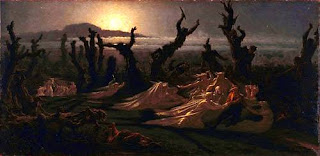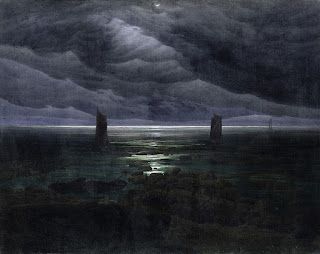Witch Weather - Part Three
How do you usually think about the meaning of protection in various contexts?
How do you ensure you make reasonable comparisons?
What do you know about instrumental and intrinsic value?
How do you ascertain the boundaries of your mind?
You are now experiencing part three in this series, as you may have noticed.How have you responded to part one, and why?
How do your decisions relate to your values?
How do you know when a formulaic response to a situation or question is required?
How do you know when a non-formulaic response to a situation or question is required?
How have you responded to part two, and why?
Do you always consider questions reasonably?
Do you consider reasoning to be an important activity?
It is an invisible one. It is not heard. It cannot be tasted. It has no smell. It has no texture or temperature.Yet it can often be communicated, as can many other thoughts, and many feelings.
How do you explain your own reasoning to yourself?
What is reasoning, from your point of view?
What is reasonable, from your point of view?
Reasoning is associated with the acquisition of language and other experiences.
Explaining reasoning to another person not only involves a process of communication but a feeling of necessity.
You may associate reasonableness with intelligence.How do you define intelligence in various contexts?
How reasonably to you attempt to acquire information and assess knowledge?
How do you assess various hierarchies?
What do you know about dominance in non-human social hierarchies?
How do you think about ecological communities in relation to peaceful human communities?
How do you identify the sources of your knowledge?
How do you identify the sources of your power?How do you identify the sources of your authority?
How do you identify the sources of your privileges and successes?
How do you identify the sources of your disadvantages and suffering?
How do you know you are holding powerful people to account properly?How do you usually develop theories about peace and conflict and cruelty?
How and where do you attempt to find inner peace, and with whom, if anyone?
The past is fact.
The future is fiction.
How have you imagined the future of the world?
How has your imagination been influenced by atmospheric chemistry and atmospheric physics?
Are you intellectually interested in the future of human thought?
Perhaps you have been learning about the 12th century BC and the Late Bronze Age collapse.
Perhaps you have been learning about androcentrism, patriarchy, unjust male privilege and various other expressions of supremacism.
How do you currently ascertain the limits of your understanding in relation to ecological abundance?How well have you explored theories and practices claimed to be associated with authority?
What do you know about authoritarianism and anti-authoritarianism?
What have been your experiences of petty tyranny?
What do you know about frugality in relation to scarcity, abundance, equality, inequality, security and insecurity?
What do you regard as moral progress, and why?
Can you float on water?
Can you float on air?
Perhaps you have been in a boat.Perhaps you have slept on an air mattress and/or floated in a swimming pool on something similar.
Who and what competes for your attention at present, and why?
If you have a suitably frugal approach to experiencing intellectual pleasures, you are likely to enjoy exploring eudaimonia each day, inexpensively and without causing pollution.
Or you may believe you exist in a post-scarcity economy.
Are you sure you understand planetary boundaries appropriately?
What do you know about professional boundaries and conflicts associated with them?What do you know about the ancient Greek Epic Cycle?
What do you know about time and motion studies?
How do you prefer to regard regulation and discipline?
What is your attitude towards body image?
What is your attitude towards clothing styles and music styles and cuisines and decor and designs and art styles and political views?
What do you know about symbolic boundaries in relation to scarcity, and frugality, and the weather?Perhaps you have been thinking about the weather in relation to the Three Witches and/or Midnight Washerwomen and/or valkyries and/or apsaras.
How do you know you are preparing for the long-term future appropriately?
How do you know you are participating appropriately in various important activities?
How carefully do you distinguish between matter and imaginings?You may think of worth mainly in terms of wealth or merit or both or neither.
How are you contributing to the quest for a civilised atmosphere?
And how do you compare one image with another and another and another and another and another and another and another and another and another and another and another and another?













Comments
Post a Comment